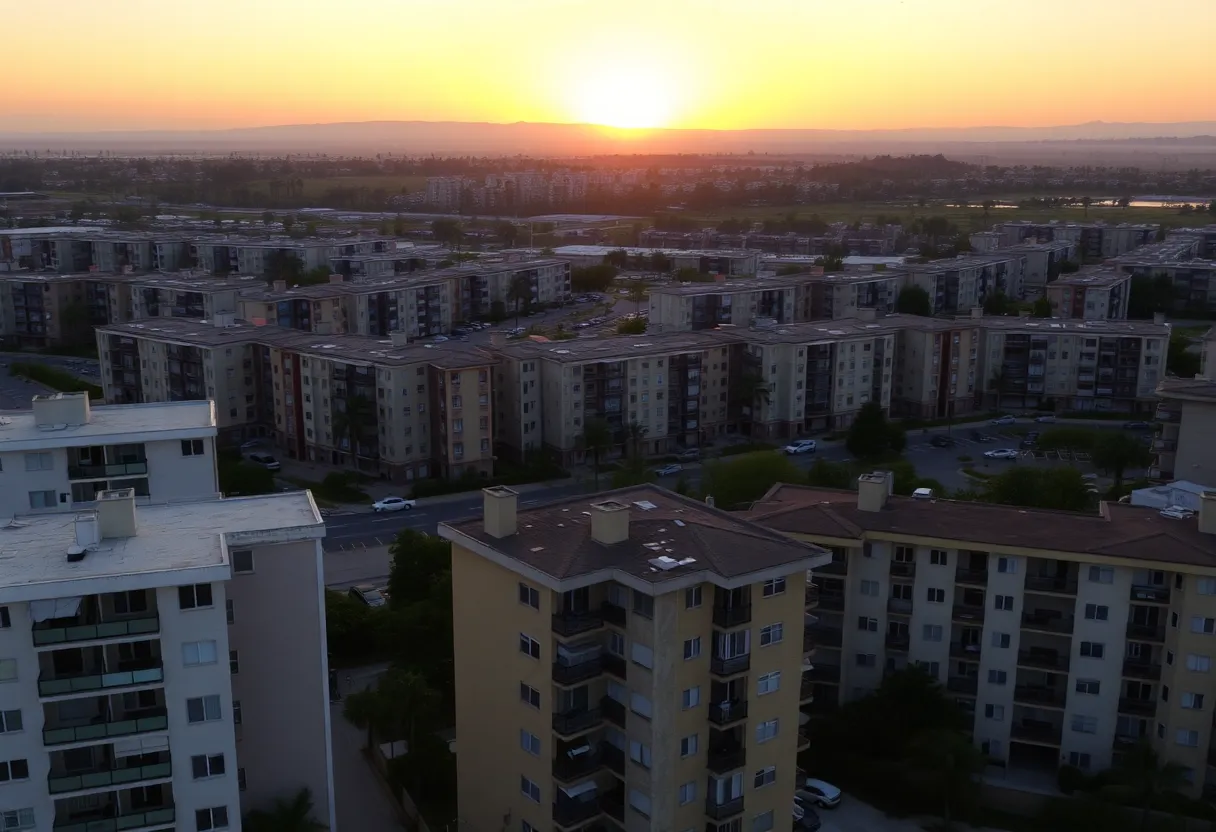News Summary
California condominium owners are facing difficulties as nearly 700 complexes are placed on Fannie Mae’s mortgage blacklist. This situation complicates sales, restricts financing options for buyers, and potentially lowers property values. Insufficient insurance and older buildings are further complicating the market, leaving many owners in a challenging position as they navigate evolving conditions. Renting may emerge as a viable alternative for those unable to sell.
California Condominiums Hit Hard by Fannie Mae’s Expanding Blacklist
The beautiful state of California is currently facing a rather challenging situation for condominium owners as nearly 700 condominium complexes have been placed on a “mortgage blacklist.” This lengthy list, maintained by Fannie Mae and Freddie Mac, two well-known government-sponsored entities, is causing quite a stir among homeowners looking to sell their properties. With the blacklist expanding, selling condos has become more challenging and is often resulting in reduced asking prices.
What Does Being on the Blacklist Mean?
Being on this blacklist can be a major headache for condo owners. Essentially, it puts restrictions on prospective buyers, preventing them from obtaining conventional loans—the go-to option that usually comes with lower interest rates and down payments. This situation can make it much more difficult for sellers to attract interested buyers and secure a fair price for their units.
The blacklist’s number of entries has been growing steadily, particularly after a high-profile incident in Florida where a condo building tragically collapsed. This made it clear that safety and maintenance issues were at the forefront of the minds of Fannie Mae and Freddie Mac, resulting in closer scrutiny into the condo complexes they were willing to back. The aim? To protect against underwriting risky mortgages, especially for those underinsured or deteriorating properties.
Where Are All These Condos?
A closer look at the numbers reveals that among the 700 blacklisted properties, there are 168 condo complexes alone in the Bay Area. Other affected cities include vibrant locales like San Francisco with 21 properties, San Jose tagging along with 18 properties, and Los Angeles having its share with 37 properties. Highlights include the iconic Rossmoor retirement community in Walnut Creek, where many units faced blacklisting that temporarily halted mortgage lending, causing a ripple effect among unit sales.
The Insurance Conundrum
Another complicating factor for these condominiums is the ongoing insurance crisis. As costs for comprehensive coverage continue to rise, many condo associations are feeling the pinch. At Rossmoor, for instance, their insurance currently covers only about 44% of dwelling units, which certainly raises red flags for lenders and potential buyers alike. This situation can directly impact the value of these properties, leaving many owners sitting on units that are less appealing to the market.
Challenges for Older Condo Buildings
As if that weren’t enough, older condominiums that might require essential upgrades or repairs are finding the blacklist implications become even more complicated. The financial and operational stability standards set by Fannie Mae can lead to many of these aging properties being labeled as “unavailable,” which is definitely frustrating for owners hoping to list their homes.
A Tough Road Ahead for condo Sellers
Many lenders might not even inform buyers that a condo is on the blacklist until a deal is already in motion, leaving sellers in a tight spot. As the market evolves, it seems that sellers may increasingly face declining values, foreclosure cases, and ongoing financial strain. As the costs of necessary repairs keep climbing, the challenges are expected only to intensify.
Possible Solutions
What’s a homeowner to do? Some experts are advising those struggling to sell to consider an alternative option: renting out their properties instead. Rental income might prove a better financial decision for owners as the market continues to navigate these choppy waters.
Even as steady demand for certain properties remains, the declining values and increase in foreclosure cases suggest broader market concerns looms large within the condominium sector. The situation is continuously evolving, and if you are a condo owner, staying informed is crucial in navigating this challenging landscape.
Deeper Dive: News & Info About This Topic
- Marin Independent Journal
- Housing Wire
- San Francisco Chronicle
- National Mortgage News
- Wikipedia: Fannie Mae








